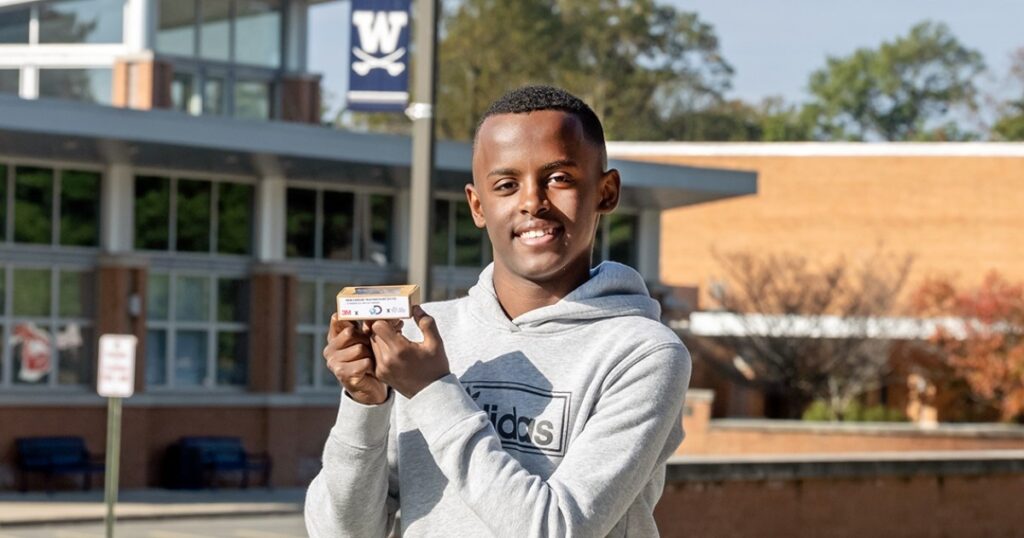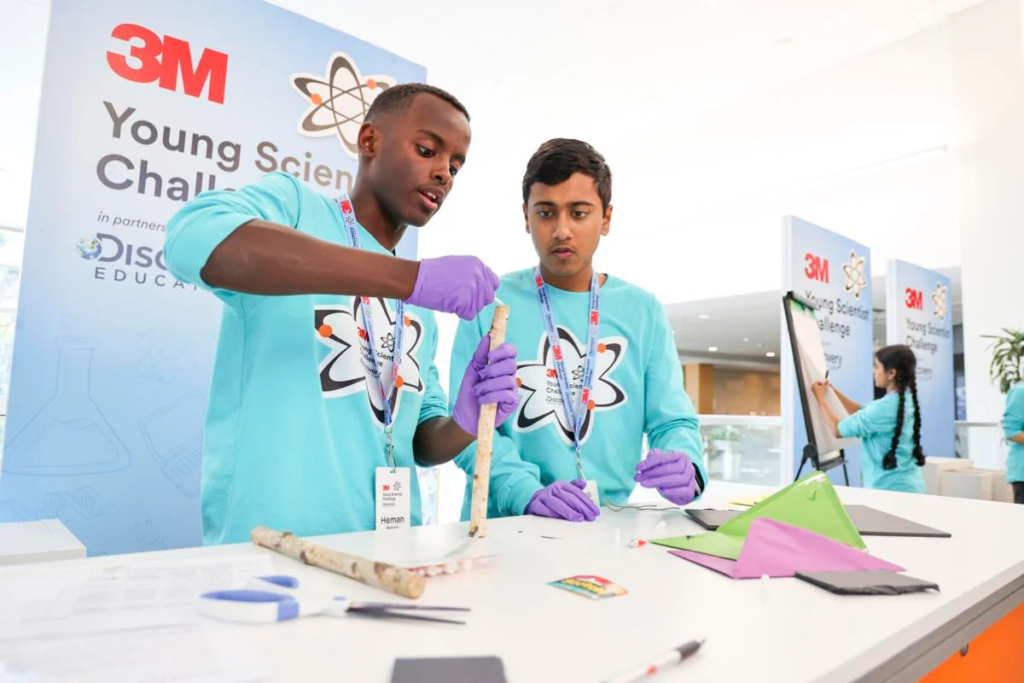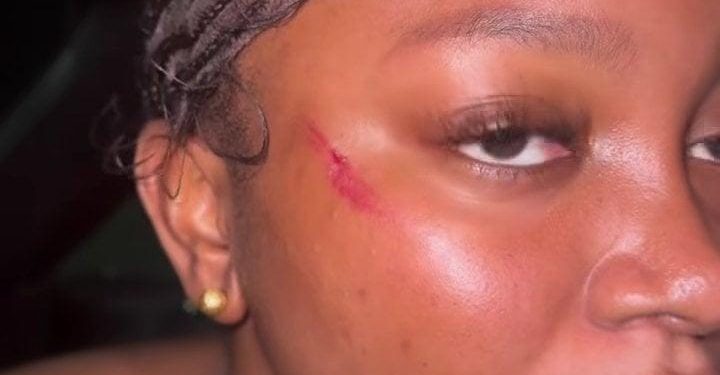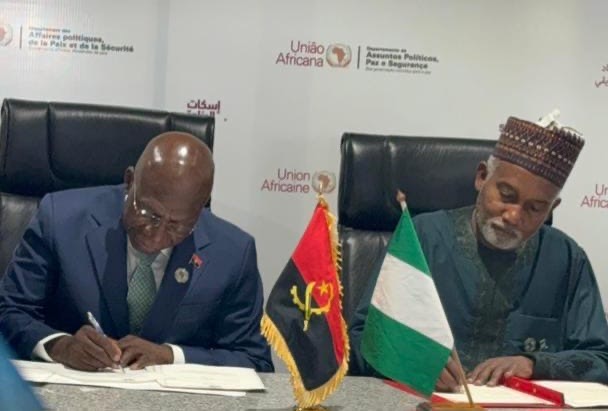Heman Bekele is not your typical high school student. Instead of spending his free time playing video games or staring at his phone, this 14-year-old from Fairfax, Virginia, was calling professors and conducting experiments, all in an effort to invent a product he hopes could help change the world. His goal is to create a soap that can treat skin cancer and make it affordable for everyone who needs it.
His work won him the grand prize in this year’s 3M Young Scientist Challenge, a competition that encourages kids to think of unique ways to solve everyday problems. Bekele’s award-winning soap was inspired by his childhood in Ethiopia before moving to the United States at the age of 4. The soap delivers cancer-fighting drugs via lipid nanoparticles, which work to activate the body’s immune cells to fend off cancer.
Deborah Isabelle, Bekele’s 3M mentor who helped him refine his cancer-fighting soap during the finalist competition, describes Bekele as “kind, intelligent, focused, inspiring, and energetic. He’s going to continue to inspire other young people to realize that science can make a positive difference.”

In an interview with NPR, Bekele shared insights about his cancer-fighting soap, his journey in winning the 3M Young Scientist Challenge, and his aspirations for the future. He has always been passionate about science and understanding how things work. Growing up in Ethiopia, he often saw people working outside under the hot sun. As he got older, he realized the significant issue of skin cancer, not only in Ethiopia but worldwide. The high cost of treating skin cancer, often around $40,000, motivated him to create an affordable and accessible solution.
Bekele started his research and development in his family’s kitchen and basement, working through the saponification process. As he progressed to the finalist stage, he sought help from the University of Virginia and Georgetown University. His 3M mentor, Deborah Isabelle, played a crucial role in organizing and structuring his thoughts, drawing from her extensive experience in research and development.
The soap Bekele developed, named MTS (Melanoma Treating Soap), is a compound-based bar infused with cancer-fighting chemicals. The primary agent is Imidazoquinoline, a drug commonly used for antifungals and acne treatments, now being explored for skin cancer. The soap also contains nanolipid-based particle transporters that help deliver the drug throughout the skin. The soap is slightly sticky, with a pale color and a bumpy texture that can serve as an exfoliant. Its strong medicinal smell indicates its potent ingredients, designed to remain on the skin even after washing.
Bekele primarily used digital molecular testing to assess the soap’s efficacy, achieving promising results. However, he aims to obtain FDA certification and conduct human testing in the future. His five-year plan includes acquiring FDA certification, conducting human trials, and eventually transforming his project into a nonprofit organization by 2028 to provide equitable and accessible skin cancer treatment globally.

Winning the 3M Young Scientist Challenge was a moment of immense joy and validation for Bekele. He felt a deep sense of accomplishment, having worked hard to achieve this recognition. The award signifies more than just a personal victory; it represents the potential of young scientists to bring their ideas to life and make a significant impact on the world.
Bekele plans to use the $25,000 prize money to further his research in STEM fields, covering the costs of necessary resources. He also intends to save some of the money for his college education, ensuring he can continue his journey in scientific discovery and innovation.
Heman Bekele’s story is a testament to the power of curiosity, determination, and the desire to make a difference. His innovative approach to addressing a global health issue at such a young age is inspiring and highlights the potential of the next generation of scientists to change the world.
Sources
- https://www.pbs.org/newshour/show/14-year-old-scientist-heman-bekele-on-his-quest-to-fight-skin-cancer-with-soap
- https://www.pbs.org/newshour/show/14-year-old-scientist-heman-bekele-on-his-quest-to-fight-skin-cancer-with-soap
- https://www.npr.org/sections/goatsandsoda/2023/10/27/1209048618/q-a-this-scientist-developed-a-soap-that-could-help-fight-skin-cancer-hes-14




